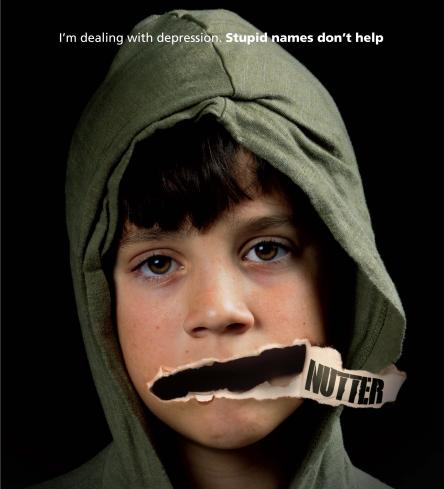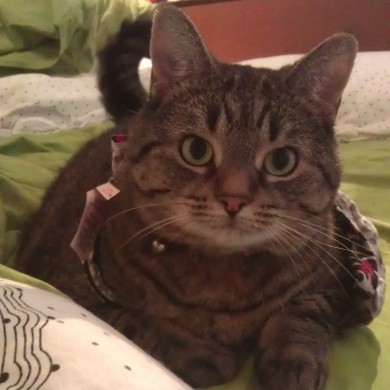
“Bad enough to be ill, but to feel compelled to deny the very thing that, in its worst and most active state, defines you is agony indeed.”
― Sally Brampton, Shoot The Damn Dog: A Memoir Of Depression
So today is Bell’s Let’s Talk Day (There’s also the Time to Talk Day based in the UK on February 6th, not sure why we didn’t all join forces). I firmly believe that talking about mental health is a critical to improving the well-being of individuals and society as a whole. We have gotten a lot better about talking to mental illness and becoming more accepting of those with mental illness, but there’s still an echo of the belief that individuals with more common disorders such as depression and anxiety are “making it up”/”making a problem for themselves” or that they just need to “cheer up” and “stop worrying.” So we have all these campaigns aimed at decreasing stigma and increasing awareness, but our language shows that we haven’t quite reached our goal. Outside the awareness days, we still often make like if we don’t see it, it doesn’t exist. If we don’t call it depression it’s not depression. There are at least three problems with this attitude:
- It hurts to be ignored. Being ignored while you’re in pain and asking for help really is just salt in the wound.
- Ignoring it doesn’t actually make it better. If you ignored the fact that your credit card statement was past due, it wouldn’t suddenly decide to pay itself. No, the consequences would pile up.
- The silence is isolating and speaks volumes. If people feel they won’t get help, will be called weak, or had their problems minimized, they will often elect to suffer in silence. This just makes the suffering more lonely and shameful. Doesn’t fix anything.
Fortunately here in Canada, we are working to reduce the stigma and improve access to treatment, albeit we are still lacking services and attention in more rural and northern areas including in Iqaluit and the North-West Territories (for more info click here). Even in areas where there is bountiful access to services, almost half don’t seek help (source). But there are many countries around the world where individuals lack access to desperately needed services. In fact, according to the World Health Organization (WHO) more than 75% of individuals worldwide do not have access to the necessary mental health services (source). Problem is that as quickly as we work to break down the barriers, we carelessly build new ones.
The language of mental illness is sort of the problem. Or at least the way we abuse it.
Have you ever been talking to a friend, describing something really silly or stupid or been miffed by someone’s apparent lack of two neurons to rub together and thrown own the R word? What about had a bad day or been tired and frustrated and declared “Kill me now.” or “I’m ready to kill myself.” Maybe when you realized How I Met Your Mother was cancelled or you suffered another disappointment you declared “I’m so depressed.” Perhaps after watching the Victoria’s Secret Fashion Fashion Show or seeing a really skinny/beautiful person you sighed to a friend “I wish I was anorexic” or labeled anorexics as “lucky”?
I could go on but I’m pretty sure you get the point. We use this type of language so colloquially and inappropriately that we cheapen it’s meaning. We can’t begin to understand the thoughts, emotions, and experiences of individuals with depression if we apply “depressed” to describe our feelings about minor disappointments, such as being unable to go out on a Friday due to homework or shows being cancelled. We make the person with depression feel silly. We cheapen their suffering. By using labels and terms so flippantly we may as well shout at them
I don’t understand you and I don’t really want to
Additionally,our language shows that we frequently forget that people with mental illness are still people and instead label them as their illness. Their label becomes their identity. Which is one of the fundamental grounds for the debate against using diagnoses – they create a stigma, an identity, and a self-fulfilling prophecy. People have depression, they are not only their depression. This distinction becomes more noticeable in cases such as autism and schizophrenia. In my classes they press upon us the importance when writing of not saying things like “Schizophrenics reported…” or “in a study with autistic children…” reminding us to remember their people-hood and say “Individuals with schizophrenia…” or “children with autism…” It may seem like a silly and minor distinction, but I think that this is critical to changing how we view and treat mental illness as a society. Making people their labels makes their illness their whole world, they have nothing else but their mental illness.
I don’t pretend to be perfect. You would think I of all people would be more sensitive in this department. I remember in high school when kids made jokes about suicide in my class I went to the bathroom and cried from the painful memories their insensitive jokes had dragged up; horrified that they could be so cruel and uncaring. I do try to be more conscious in my use of mental illness terminology, asking myself, “Would I say this to a person actually suffering from this disorder?” (i.e. would I say “I’m so retarded sometimes” to someone who was mentally disabled?). If I wouldn’t say it to someone who knows what it’s like I try to find a more accurate way of describing my feelings and thoughts, and I challenge you to do the same.
I also challenge you to speak out. If you have suffered mental illnesses before, tell the world without shame – everyone needs help sometimes, you wouldn’t be ashamed to tell someone you broke your leg, or had heart disease. The brain is an organ too, it’s part of our body, and it can break sometimes. If you haven’t suffered from mental illness, odds are you know someone who has – go talk to them, ask them about their experience and how they are doing now, give them a hug and an hour of your time. If you are suffering in silence, go get some help – it doesn’t have to be professional, it can be a friend, or even a helpline – but speak up – shout if you have to and don’t stop screaming until someone gives you the help you need. If someone opens up to you – listen, do SOMETHING, and say thank you, because they trusted you with a very fragile and vulnerable part of themselves, and they trust you to care.
“When you’re drowning you don’t think, I would be incredibly pleased if someone would notice I’m drowning and come and rescue me. You just scream.”
― John Lennon









